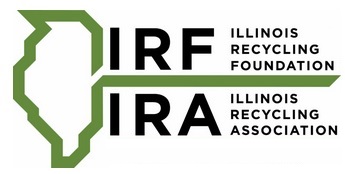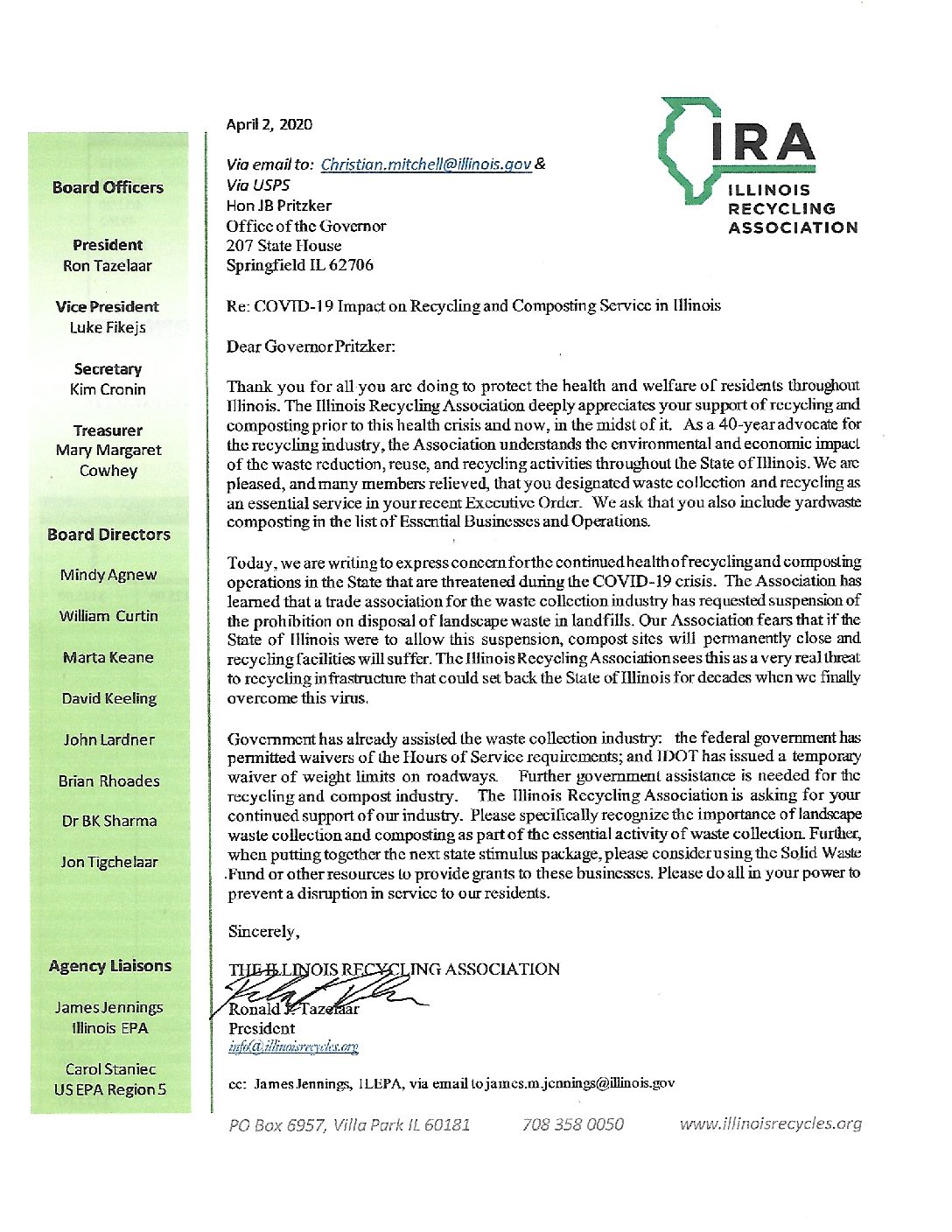In a comprehensive workshop held recently, stakeholders from government, industry, and nonprofit sectors converged to share insights and strategies for enhancing the statewide Consumer Electronics Recycling Act (CERA) program. Hosted by the Illinois Recycling Foundation (IRF) in collaboration with the Illinois Environmental Protection Agency (IEPA), Sponsored by National Center for Electronics Recycling (NCER), the event brought together county representatives, environmental specialists, recycling experts, and legislative advocates to review current practices and discuss critical updates ahead of the program’s impending sunset.
A Collaborative Effort for a Sustainable Future
The workshop opened with warm welcomes and introductions from IRF President Claire Ryan, who underscored the importance of community engagement and cross-sector collaboration. Attendees were encouraged to share their contact information and experiences via the chat, setting an interactive tone for the day’s sessions. Participants were reminded that the webinar would be recorded for future reference, ensuring that valuable insights would be accessible to all interested parties.
Understanding the Consumer Electronics Recycling Act
Environmental Protection Specialist Archana Uppaluri from the Illinois Environmental Protection Agency (EPA) provided an authoritative overview of CERA. She explained that the law covers eight categories of residential electronic devices, establishing a framework in which manufacturers, counties, local governments, and designated recyclers share responsibility for managing end-of-life electronics. Archana emphasized that the program is designed to remove hazardous materials from the waste stream by directing them to certified recycling facilities rather than landfills.
The Role of the Manufacturer Clearinghouse
Jason Linnell, Executive Director of the National Center for Electronics Recycling (NCER), detailed the operational structure of the manufacturer clearinghouse. This central hub is tasked with coordinating the obligations of approximately 85 to 90 registered manufacturers. By aligning manufacturer contributions with group plans, the clearinghouse ensures that participating counties receive the necessary support and guidance to manage their collection events effectively. Linnell also highlighted the importance of detailed opt-in registration forms, which are due by March 1, to provide essential data such as proposed collection sites, anticipated tonnage, and county-specific preferences. This information is critical for matching counties with appropriate group plans and recycling service providers.
County-Level Strategies and Operational Best Practices
Several county representatives shared their firsthand experiences in executing successful electronics recycling programs:
- DuPage County’s Model:
Joy Hinz, DuPage County’s Environmental and Sustainability Programs Manager, recounted the evolution of her county’s program—from early partnerships with private recyclers to the establishment of consistent, cost-effective collection sites. DuPage County now hosts a mix of permanent drop-off locations and one-day collection events, leveraging partnerships with vendors like E-Works to ensure that labor and logistics costs remain manageable. - McLean County’s Approach:
Michael Brown, Executive Director of the Ecology Action Center in McLean County, described his county’s long-standing involvement in recycling initiatives. McLean County’s program features a centrally located drop-off site supported by an intergovernmental agreement with local municipalities. Brown’s presentation underscored the challenges of meeting minimum tonnage requirements and the innovative solutions his county has adopted, including appointment-based collections and partnerships with experienced recyclers to avoid underweight trailer fees. - Service Models from the Field:
Jimmy Larkin from A-Team Electronics illustrated how counties can outsource event logistics to professional collection firms. His presentation provided a detailed breakdown of services, including on-site traffic management, equipment provisioning, and data reporting, all of which help counties meet regulatory requirements while minimizing administrative burdens.
Technological and Operational Insights from Recyclers
Brian Catello, Director of Business Development at Universal Recycling Technologies (URT), offered an in-depth look at the recycling process. His presentation walked attendees through the journey of electronic waste, from initial collection through material separation and eventual recovery of valuable components such as metals, plastics, and glass. Catello stressed the importance of proper sorting at the collection level to maximize commodity recovery and minimize downstream processing challenges. He also discussed emerging trends in the industry, including the need for advanced recycling techniques to handle a growing diversity of electronic devices.
Legislative Update: Preparing for the Future
A highlight of the workshop was the legislative update provided by Christina Siebert, Executive Director of the Solid Waste Agency of Northern Cook County. With the current CERA set to sunset at the end of 2026, Siebert outlined proposed amendments aimed at renewing and strengthening the program for 2027 and beyond. Key proposals include:
- Increasing County Participation:
To lower financial barriers, manufacturers have agreed to waive underweight trailer fees for up to two collection events per year in participating counties. This change is expected to encourage more counties to opt into the program by reducing the risk of unforeseen costs. - Sustaining Private Network Collections:
The amendments will formally recognize private network collections—such as those managed by retailers and nonprofit organizations—and require manufacturers to report their contributions by county. This measure will provide a more comprehensive view of statewide collection efforts and support a more integrated recycling infrastructure. - Adapting to Changes in the Electronics Market:
As consumer electronics evolve, the amended law will expand coverage to include additional devices, such as home audio components and peripheral accessories, ensuring that the program remains relevant as technology advances. - Expanding Access for Diverse Generators:
Under the current framework, only residential electronic waste is accepted. The proposed changes will extend collection eligibility to include small-scale generators such as schools, libraries, and other community organizations—provided they limit collections to seven items per event—to facilitate broader participation. - Enhancing Consumer Awareness:
The new amendments call for the creation of centralized consumer education resources hosted by the manufacturer clearinghouse. These resources will consolidate critical information about what items can be recycled, proper disposal methods, and the environmental benefits of participating in the program.
Seibert expressed optimism that these legislative changes, supported by manufacturers, retailers, and environmental advocates, would pass in time to prevent any disruption in program operations. With proposed bills already filed in both the Illinois House and Senate, stakeholders are actively engaging with legislators to ensure a smooth transition into the next phase of the program.
Looking Ahead
In addition to the legislative update, participants were reminded of several upcoming events designed to further the state’s recycling initiatives. A joint conference scheduled for October in East Peoria, along with subsequent legislative and collaborative workshops in March and April, will continue to provide valuable forums for sharing best practices and discussing emerging challenges.
As Illinois confronts the dual pressures of increasing electronic waste and rapidly evolving technology, the collaborative efforts showcased at this workshop underscore the state’s commitment to sustainable resource management. By leveraging innovative collection strategies, fostering strong partnerships among manufacturers, recyclers, and counties, and proactively updating legislative frameworks, Illinois is well positioned to maintain a robust and effective electronics recycling program.
For further information, resources, and contact details for all speakers and participating organizations, stakeholders are encouraged to consult the materials distributed by IRF and IRA following the workshop.
You can watch the workshop meeting here at: https://youtu.be/bbDqXDn7Sqc


















